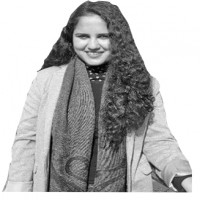Ending Widows’ Woes
Mahima Devkota
In Hindu tradition, when a man dies, his spouse undergoes a set of rituals that commence her widowhood. She becomes bidhawa (widow). Her female relatives remove all red clothes and ornaments such as bangles and vermillion which signifies her auspicious married life.
Her brightly coloured red sari is now replaced with a ‘white sari’ confining her within the tight social constructs. Because of these socially built practices, many Hindu widowed women are suffering from the plight of widowhood. She was considered as a Laxmi of the house but she suddenly turned into an inauspicious widow in a moment. She gets new identity that is often taken as a liability at home and in community. It is quite puzzling to see how “Sauvagya” as a married woman changes into “Abhagya” after the death of the husband.
The very idea of remarriage for an upper caste Hindu widow, even if she is childless, is beyond imagination. Widow marriage was considered sacrilege, barring a few exceptions. Thus, she lives in isolation in the remaining years though she was in no way responsible for the death of her husband.
Horrible impression
During my research conducted at Devghat in Chitwan in central Nepal, I got an opportunity to have a closer look at the lives of many widows. Head shaven, they wear a dull white sari and refrain from delicious food and spices such as onions, and garlic which have medicinal qualities, too. They live on old-age allowance with no strong social support network. I had a horrible impression about them: how innocent women were reduced into a life of abject poverty, humiliation and sufferings.
Besides, the initial sufferings, grief, and loneliness, the widows go through the role reversal. First, a woman who loses her husband has to readjust the basis of her entire life and work: whom she lives with, how she earns her livelihood, whether she owns her husband's property and so on. Second, the negotiations involved in these adjustments are typically much easier if she has adult sons and/or supportive parents and brothers. Third, most widows receive very little support from their in-laws.
As a result, many women have chosen to live in religious place like Devghat where they get security, food and basic shelter. They have sense of belonging, with spiritual happiness and peace in mind. They shared that their stay at Devghat is much happier than living at the houses of late husbands. Almost all their stories reflect the same tale of discrimination they face in course of earning livelihood and participating in the family and social affairs. They abruptly witness decline in power relations and socio-economic status. For many widows, getting social support networks and realising a dignified role remains a far cry. “Ram knows my destiny and I am still waiting for my colourful day,” says, Dharani Sharma, 75, who became widow in her teens.
It is common scene when widows become victims of abuse, neglect and violence at the hands of family members and society. Here are fewer cases when widows secure property. Even if some gets the benefits, they have to go to whole struggle with the family. This unfairness and abuse meted out to women was perhaps never a part of the values originally enshrined in Sanatana Dharma. Didn’t Damayanti have another swayamvara and search for her next bridegroom when she was widowed on the presumed death of Nala? How else can one explain Sugreeva marrying his elder brother and Vanara king Vaali’s wife, that too after conspiring with Rama, and killing him? Or Vibhishana, the brother of the Lanka King Ravana, marrying his wife Mandodari after Ravana’s death? Or Tulsi married with Lord Vishnu after her husband was killed by Lord Siva, to name some instances.
Harbingers of bad luck!
Many widows been sneered at and are accused of being harbingers of bad luck and being responsible for failure of their relatives. With the social constructivism on widowhood, even many educated widows left their job for fear of being ridiculed by the society. This is not to say, that, all widows have been deprived of their right to life. But, in our society, many surely falls prey to stigma.
Now, it is for us to think, ‘Do we want to see a widow suffer lifelong or do we want to end her pain? Do we want to give opportunities to widows and help them to live a dignified life? Because at the end of the day, change is not about big headlines but the way we think, talk, act and express in everyday life that creates the ripple effects that benefits everyone.’
(Devkota holds Master's Degree in Social Work)
Recent News

Do not make expressions casting dout on election: EC
14 Apr, 2022
CM Bhatta says may New Year 2079 BS inspire positive thinking
14 Apr, 2022
Three new cases, 44 recoveries in 24 hours
14 Apr, 2022
689 climbers of 84 teams so far acquire permits for climbing various peaks this spring season
14 Apr, 2022
How the rising cost of living crisis is impacting Nepal
14 Apr, 2022
US military confirms an interstellar meteor collided with Earth
14 Apr, 2022
Valneva Covid vaccine approved for use in UK
14 Apr, 2022
Chair Prachanda highlights need of unity among Maoist, Communist forces
14 Apr, 2022
Ranbir Kapoor and Alia Bhatt: Bollywood toasts star couple on wedding
14 Apr, 2022
President Bhandari confers decorations (Photo Feature)
14 Apr, 2022











